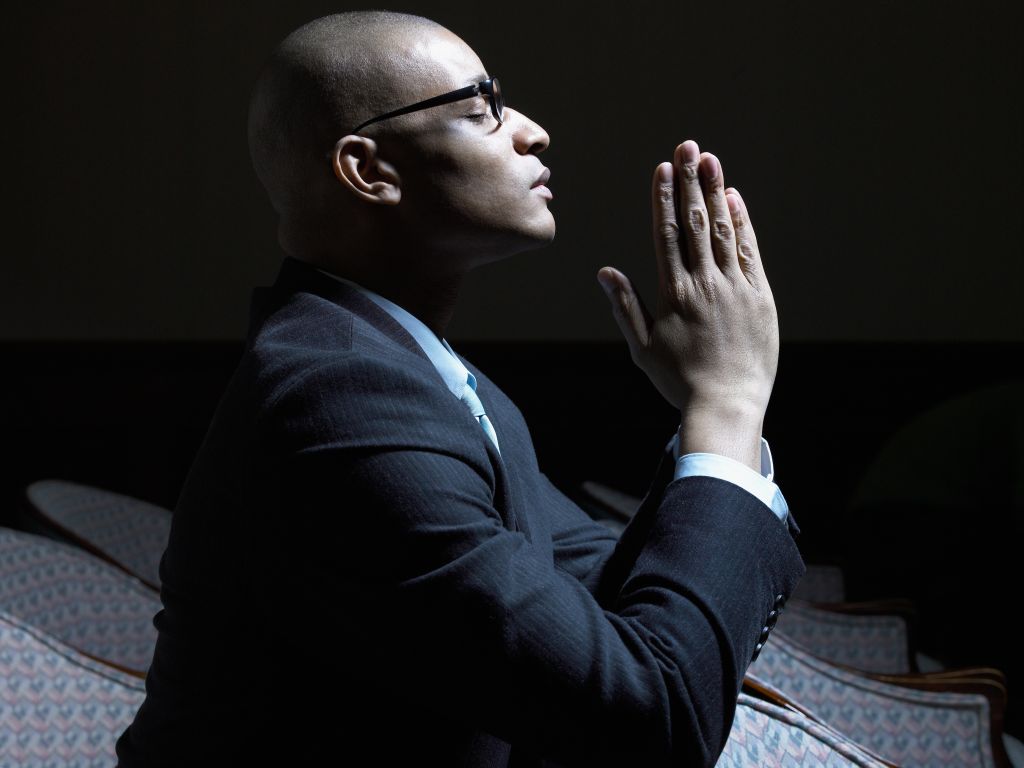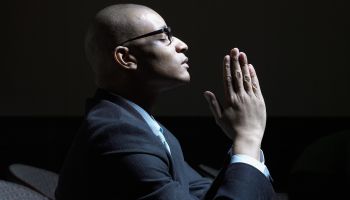
Source: Hans Neleman / Getty
The dangerous mental health stigma that exists in the Black community is a tale as old as time. Who hasn’t heard someone call the issue of mental health a “white thing?” Now, of course, many factors contribute to this problem, but in my opinion, there is no institution in the Black community that perpetuates, and exacerbates, this stigma more than the Black church.
I could be wrong, but I feel confident saying that the vast majority of Black Americans have some sort of connection to a Christian church. That’s just part of the Black experience. For me, growing up in the Black church has been nothing short of interesting—I make that distinction because we all know there’s a stark difference between the way Black people do church and the way our counterparts worship.
Back then, I knew that questioning the faith was a big faux pas, so I didn’t. Instead, I did as I was told and I prayed.
Personally, I’m one of the more extreme cases. I went to church nearly every day of the week for at least 12 years of my life. I spent the ages of 13 through 21 away at boarding school and college, which meant less time in church. But please believe my a*s was still there over the summer and holiday breaks. But even when I wasn’t in church, it was in me. The church is where I started singing, where I learned about service, and where my moral compass was first calibrated. Church taught me how to be. Much of the man I am today can be traced back to my churched-up childhood. Church helped me get a lot of things right. But it also led me handling my mental health issues wrong.
See, I’ve always been an anxious person. As a kid, I didn’t have the language to put a name to what I was feeling, but if I’m honest, one of my longest relationships in life has been with anxiety. The excessive worrying about everything—from grades to family life, to relationships with my peers—is exhausting. I’ve also experienced more than my fair share of depressive moments and still do to this day. But as a church kid, that wasn’t something that we as believers went through, but it certainly wasn’t something we claimed. The topic of depression or any other mental illness was always met with scripture: “God has not given us a spirit of fear. But he has given unto us a spirit of power, of love, and of a sound mind.” So when issues came up, I was simply directed to pray.
Back then, I knew that questioning the faith was a big faux pas, so I didn’t. Instead, I did as I was told and I prayed. I prayed harder. I prayed longer. I prayed for specifics like, “Please make these feelings of self-hate go away.” I pleaded with God, hoping that one day my suicidal thoughts, and then the guilt and shame around those thoughts, would just disappear and I’d finally be free. I prayed for a miracle. I prayed for more faith. I prayed for favor. But nothing happened. And I began to internalize my despair, feeling like maybe this was just my lot in life. Perhaps I still wasn’t praying hard enough, or maybe I didn’t read enough verses in the Bible. I thought feelings like depression weren’t “of God,” so the problem had to be with me.
In our society, we’re only expected to exhibit a narrow range of emotions—aggression being chief of them all—so I never really felt alright expressing my depression, which led to increased feelings of isolation.
I felt defective. You hear all these testimonies in church of the reward that faithfulness will get you. If you just hold on long a lil’ while longer, He’ll meet you where you are and fix everything. If you just keep your nose in The Word, He’ll mend your broken heart. But nobody ever spoke about seeking treatment from a trained professional. I mean, why talk to a therapist when the mind regulator is only a prayer away? And being a young, Black male didn’t help either. In our society, we’re only expected to exhibit a narrow range of emotions—aggression being chief of them all—so I never really felt alright expressing my depression, which led to increased feelings of isolation.
Often, there is this talk among church folk that if you seek worldly help for anything, your faith is weak, because, your help cometh from The Lord (duh). Here’s why that was problematic for me: If the only advice you get from the church is to “pray without ceasing,” but it doesn’t work, what do you do? I was on edge. The Bible clearly says in James 2:17 (see, I be knowin’) that faith without works is dead, which means you have to actually put in some work for your faith to bear fruit.
I decided to get more help. For some, help looks like counseling. I opted to start with simply looking outside of the church for additional guidance. It’s paid off.
Lately, I’ve been working on myself—self-help books, consulting elders and mentors, and practicing mindfulness— a lot. I’ve picked up some of the tools necessary to live my best life. But it hasn’t been an easy road. Working through my own issues as a young Black man in America has been both tedious and draining. Honestly, things became a little clearer to me when I realized that, if I were to believe in God, I’d have to believe that He created everything—including the fields of psychology and psychiatry—for a reason, which is when I began to change my views on getting help.
So, to all my brothers and sisters out there struggling through life and needing help—go get it. If no one’s ever told you, you’re not less of a man for seeking help. You can pray about it until Jesus comes back, but if you don’t put the work in, you’ll never get to where you want to be.
Malcolm Spaulding is a freelancer for CASSIUS.
















